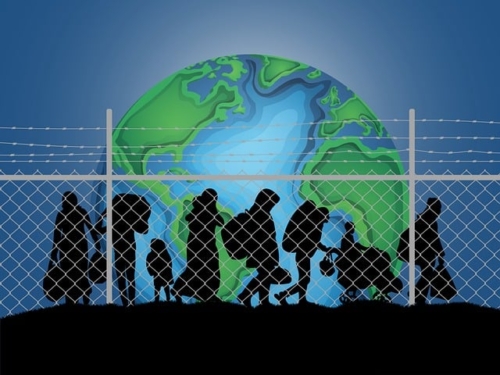Series papers explore challenges in HIV care for migrants and refugees, highlighting social and structural barriers

A study has revealed how countries across the world have downplayed the health of international migrants who face barriers while accessing HIV care along the migration routes.
In many countries, the study shows that people on the move are confronted with stigma related to migration status, racialism, discrimination and unfavourable policies that run health care systems.
The study focused on migrants who are not aware of their HIV status but are either infected with or are vulnerable to acquiring HIV, and migrants who know their positive status and require linkage and adherence to HIV treatment.
“Migration is a common phenomenon and will remain an important health determinant when attempting to successfully strengthen health systems, including the access to continuity of HIV care,” the journal published by Lancet notes.
The worst hit are the undocumented migrants who due to fear of deportation and stigma may never seek HIV care from a health facility.
Although documented migrants have the right to access health care in some countries, they might still face barriers while accessing HIV care.
In some countries, documented migrants reportedly faced verbal abuse and discrimination in healthcare settings and were denied access to treatment even when they had the right to it, or were charged higher fees.
According to the study, the migration trajectory, including a pre-migration period in departure countries and transition periods before arriving at destination countries, presents HIV-related risks for migrants.
“Along this trajectory, migrants are likely to face different risk-inducing social, physical, political, and economic environments. Migrants’ departure countries might contribute to their overall determinants of HIV including specific vulnerabilities, practices around safer sex, and health-care seeking,” it reads in part.
The study cites a case where migrants arriving from countries with a patriarchal culture where sex is considered taboo, such as Arab countries, have been reported to experience a high burden of gender-related stigma associated with a high likelihood of acquiring HIV and delayed testing.
Additionally, the report says that experiences and familiarity with healthcare systems in departure countries might also shape migrants’ practices around seeking HIV care in transition or destination countries.
In the context of forced displacement, the research states that challenges related to accessing HIV care during the transition stage are major points of concern, especially where some migrants have to reside in refugee facilities in transition countries for long periods, which might substantially delay their access to HIV care.
These 2 research papers are part of the Lancet SERIESHIV in Migrant Populations Online first accessible freely after registration:
Humanising and optimising HIV health care for refugees and asylum seekers